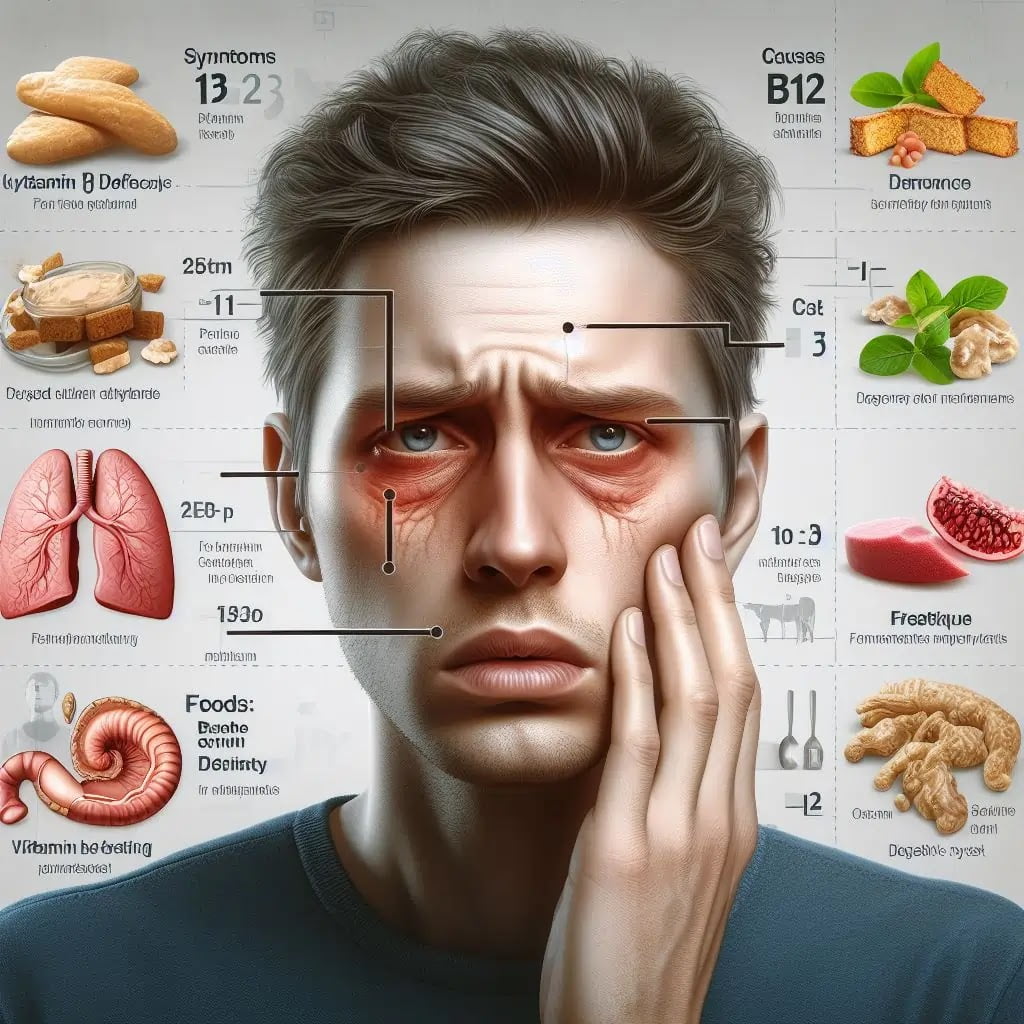Vitamin D, often hailed as the “sunshine vitamin,” plays a crucial role in numerous bodily functions. Beyond its well-known associations with bone health, immune support, and mood regulation, vitamin D can also impact our sleep patterns. Surprising as it may seem, there is mounting evidence showing a connection between vitamin D deficiency and daytime sleepiness or tiredness. In this article, we will explore the reasons behind this relationship, the impact of vitamin D on sleep regulation, and how to address it to improve overall well-being.
What is vitamin D?
Vitamin D is a unique nutrient that our bodies can produce when the skin is exposed to sunlight. It can also be obtained from certain foods like fatty fish, fortified dairy products, and supplements. The primary forms of vitamin D are vitamin D2 (ergocalciferol) and vitamin D3 (cholecalciferol). Once synthesized or consumed, vitamin D undergoes further conversion in the liver and kidneys to its active form, calcitriol. This active metabolite is responsible for carrying out various biological functions.
The connection between vitamin D and sleep
While vitamin D is widely recognized for its roles in bone health and immune function, recent research has unraveled its impact on sleep regulation. The brain contains numerous vitamin D receptors, especially in areas involved in sleep-wake regulation. These receptors interact with vitamin D to influence the sleep-wake cycle, and their dysfunction can affect sleep quality and duration.
Daytime sleepiness and tiredness
Excessive daytime sleepiness and persistent tiredness can significantly impact our daily lives. Causes can range from sleep deprivation and lifestyle factors to underlying medical conditions. Surprisingly, vitamin D deficiency has emerged as a potential contributor to daytime sleepiness and tiredness. Individuals lacking adequate vitamin D levels may experience disrupted sleep patterns, difficulty falling asleep, or feeling excessively tired during the day.
Hormonal regulation
Vitamin D is known to influence the production of various hormones in the body, including melatonin and serotonin. Melatonin is primarily responsible for regulating the sleep-wake cycle, and serotonin plays a role in promoting wakefulness. Imbalances in these hormones due to vitamin D deficiency can disrupt the natural circadian rhythm, leading to sleep disturbances and fatigue.
Vitamin D deficiency and sleep disorders
Vitamin D deficiency has been linked to an increased risk of developing certain sleep disorders. Insomnia, characterized by difficulty falling or staying asleep, has shown a correlation with low vitamin D levels. Restless leg syndrome, a condition causing an irresistible urge to move the legs during rest, has also been associated with vitamin D deficiency. Additionally, sleep apnea, a common disorder characterized by interrupted breathing during sleep, has shown connections with low vitamin D levels as well.
The impact of vitamin D on energy levels
Vitamin D plays a vital role in maintaining optimal energy levels within our cells. It helps facilitate cellular energy production by influencing the function of mitochondria, the powerhouses of our cells. Vitamin D also regulates the production of adenosine triphosphate (ATP), a molecule that stores and transports energy within the body. Disruptions in these essential energy processes due to vitamin D deficiency can lead to fatigue and decreased alertness.
Factors contributing to vitamin D deficiency
Several factors can contribute to vitamin D deficiency, including limited sunlight exposure and dietary deficiencies. People who spend little time outdoors, particularly in regions with limited sunlight, are at higher risk. Darker skin pigmentation decreases the skin’s ability to synthesize vitamin D from sunlight efficiently. Furthermore, certain medical conditions, medications, and malabsorption issues can affect the body’s ability to absorb and utilize vitamin D effectively.
Testing and diagnosing vitamin D deficiency
To determine vitamin D levels, blood tests measuring serum 25-hydroxyvitamin D [25(OH)D] concentrations are commonly used. Generally, levels below 20 ng/mL (50 nmol/L) indicate deficiency. However, it’s important to recognize that optimal vitamin D levels may vary based on individual circumstances and clinical judgment. Apart from laboratory results, individuals experiencing symptoms such as daytime sleepiness, fatigue, or mood changes may be considered for further evaluation.
Treating vitamin D deficiency
If diagnosed with vitamin D deficiency, several strategies can help restore optimal levels. Exposure to sunlight, even for short periods, can stimulate endogenous vitamin D production. However, it’s essential to balance sunlight exposure while taking necessary precautions to protect the skin. Supplementation is also a common approach, with several vitamin D3 supplements available. The recommended daily intake varies depending on age, sex, and individual needs, so it’s best to consult healthcare professionals to determine appropriate dosages.
Lifestyle changes to improve sleep and energy
In addition to addressing vitamin D deficiency, adopting healthy lifestyle habits can contribute to better sleep quality and increased energy levels. Practicing good sleep hygiene by establishing a regular sleep-wake schedule, creating a comfortable sleep environment, and avoiding stimulating activities before bedtime can improve overall sleep. Incorporating regular exercise and a balanced diet rich in essential nutrients can also enhance sleep and boost energy throughout the day.
Risk groups and at-risk populations
Certain demographics are more prone to vitamin D deficiency and its related effects. Older adults, who typically spend less time outdoors and have decreased skin synthesis efficiency, may have inadequate vitamin D levels. Dark-skinned individuals, due to higher melanin content, naturally have reduced vitamin D synthesis abilities. It is crucial to raise awareness within these groups and ensure they receive adequate vitamin D through supplementation or dietary adjustments.
Prevention and long-term benefits
Preventing vitamin D deficiency is of paramount importance for overall health and well-being. Encouraging regular, safe sun exposure can go a long way in maintaining optimal vitamin D levels. Educating individuals about the importance of vitamin D, its natural sources, and intervention strategies can help prevent deficiencies and associated sleep disruptions. By addressing vitamin D status, we not only improve sleep patterns and energy levels but also support a range of bodily functions.
Alternative causes of daytime sleepiness
While vitamin D deficiency is one possible cause of daytime sleepiness and tiredness, it is essential to consider other factors that may contribute to these symptoms. Other nutrient deficiencies, such as iron, magnesium, or B vitamins, can also lead to fatigue. Various sleep disorders, medical conditions, or lifestyle choices, such as excessive caffeine consumption or poor sleep habits, may influence daytime sleepiness. Consulting with healthcare professionals can help identify specific causes and develop appropriate treatment plans.
Conclusion
In conclusion, vitamin D deficiency can have surprising consequences on our sleep patterns and energy levels. The connection between vitamin D and sleep regulation is rooted in the presence of vitamin D receptors in the brain involved in sleep-wake cycle regulation. Low vitamin D levels can lead to disruptions in hormonal regulation, affect energy production within cells, and contribute to sleep disorders. By understanding the links between vitamin D, sleep, and energy, we can take proactive steps to optimize our vitamin D levels, improve sleep quality, and boost overall vitality.
FAQs
1. Can taking vitamin D supplements help improve sleep?
- While vitamin D supplementation can help address deficiencies, its direct impact on sleep quality is not yet fully understood. It is best to consult with healthcare professionals for personalized guidance.
2. Can I get enough vitamin D from sunlight alone?
- Sunlight exposure is an excellent source of vitamin D. However, factors like geographical location, time of day, season, skin pigmentation, and sunscreen use can affect the body’s ability to synthesize vitamin D from sunlight.
3. Are there any natural food sources of vitamin D?
- Yes! Fatty fish like salmon, trout, and mackerel are rich in vitamin D. Other sources include fortified dairy products, egg yolks, and certain types of mushrooms.
4. Can vitamin D deficiency cause insomnia?
- Low vitamin D levels have been associated with an increased risk of developing insomnia. Improving vitamin D status may positively influence sleep and help manage insomnia symptoms.
5. Can vitamin D supplements cause daytime sleepiness?
- In general, vitamin D supplementation is not known to cause daytime sleepiness. However, individual responses may vary, and it’s advisable to monitor any potential side effects and consult healthcare professionals if concerns arise.




